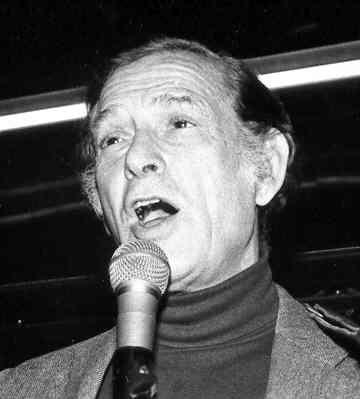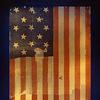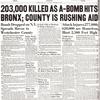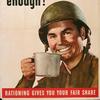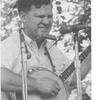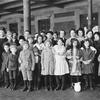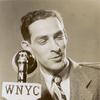Folk balladeer, playwright, producer and musician Oscar Brand served as the host of Folksong Festival on WNYC AM for more than seven decades.
The program debuted on December 9, 1945 and aired every Saturday at 10 pm in New York City. According to The Guinness Book of World Records, it was the longest-running radio program with the same host. In 1995, on its fiftieth anniversary, the program won a prestigious Peabody Award for its contribution to American culture. Through his show, Mr. Brand championed folk music and provided a platform for artistic expression for talent such as Woody Guthrie, The Weavers, Huddie Ledbetter, Bob Dylan, Judy Collins, Harry Belafonte, Joan Baez, Phil Ochs, Harry Chapin, Arlo Guthrie, Emmylou Harris, Joni Mitchell, Peter, Paul & Mary, Kingston Trio, Pete Seeger, and many others.
When not presenting Folksong Festival, Oscar Brand was the curator of the Songwriters' Hall of Fame, author of seven best-selling books, recorded 90 LPs, written songs for Doris Day, Ella Fitzgerald, Harry Belefonte, the Smothers Brothers, and the Mormon Tabernacle Choir. He had been on the faculty of The New School, New York University, and Hofstra University. He had a BS in Psychology from Brooklyn College, a Laureate from Fairfield University, and an honorary Doctorate from the University of Winnipeg.
Shows:
Oscar Brand appears in the following:
The Origins of the "Star Spangled Banner," in Six Minutes
Friday, September 26, 2014

The Day They Dropped an A-Bomb on the Bronx in December 1952
Wednesday, January 01, 2014

In Wartime '40s, America's First Taste of Rationing
Tuesday, April 09, 2013

Doc Watson Philadelphia Folk Festival circa 1970
Wednesday, May 30, 2012

Join the Archives department in celebrating the life of Doc Watson with this rare interview and performance at the Philadelphia Folk Festival.
Part 8 - Where Have All the Jobs Gone: The Eighties
Thursday, November 19, 1981
Episode 8 explores the process of automation and examines the effects it has had on work in America. It focuses on two industries--shipping and printing--to illustrate how automation has changed the modern workplace. Both the International Typographical Union and the International Longshoreman's Association anticipated the changes that were to come, ...
Part 7 - Sixty Words per Minute: Clerical Workers Have Their Say
Wednesday, November 18, 1981
The seventh episode of New Yorkers at Work investigates the problems facing clerical workers, particularly female office workers. The women interviewed recount their experiences in jobs with little opportunity for advancement, the expectations made of them as women and the stereotypes they faced, and the difficulties in organizing their industry. ...
Part 6 - Bargaining, Bailout, Burnout: Public Employees and the Service Crisis
Tuesday, November 17, 1981
This episode of New Yorkers at Work focuses on the unusual position of public sector workers and their unions. Teachers, welfare case workers, dentists, public sector union officials, and others talk about their struggles to earn the right to collective bargaining, the 1975 fiscal crisis, and their troubled relationships with ...
Part 5 - Climbing that Ladder: Jobs and Opportunity
Monday, November 16, 1981
In this episode of New Yorkers at Work, minorities and women discuss the difficulties they have faced in finding jobs and receiving equal treatment and equal pay. The program begins with minorities returning from war to be confronted with prejudice and with women facing their own limited options.
As ...
Part 4 - Solidarity Asunder: Labor After the War.
Thursday, November 12, 1981
The fourth episode of New Yorkers at Work focuses on the gradually diminishing influence of communism and the left-wing in the AFL-CIO during the beginnings of the cold war. Narrators Martha Greenhouse and Frederick O'Neal begin the episode with a lengthy disclaimer qualifying the discussion and clarifying the episode's political ...
Part 3 - Hard Times and Picket Lines: The 30s and the CIO
Wednesday, November 11, 1981
The third episode of New Yorkers at Work delves into the formation of the Committee for Industrial Organizations (CIO) out of the American Federation of Labor (AFL) in the 1930s. Men and women who participated in unions during the era recall the appalling working conditions, the rampant unemployment, the lack ...
Part 2 - Greenhorn Dreams Lost and Earned: Immigrants at Work
Tuesday, November 10, 1981
Part 1 - Life Under a Hardhat: A Question of Skill
Monday, November 09, 1981
In this first part of New Yorkers at Work, various men and women discuss their experiences working in skilled trades that over time became increasingly mechanized, unskilled labor, concentrating in particular on the plight of painters. They also describe changes in the organization of labor, the "beerzha" labor markets of ...
Squirrel Nutkin
Friday, January 01, 1960
The exact date of this episode is unknown. We've filled in the date above with a placeholder. What we actually have on record is: 196u-uu-uu.
This episode is from the WNYC archives. It may contain language which is no longer politically or socially appropriate.
Starts abruptly.
Vivian ...
Mind Over Music, 1949-08-31
Wednesday, August 31, 1949
This episode is from the WNYC archives. It may contain language which is no longer politically or socially appropriate.
Musical quiz show with the strangely sarcastic John Savage. The panelists include Walter Hendl, former Assistant Conductor of the New York Philharmonic; Vernon Duke, composer of Cabin in the Sky and ...
